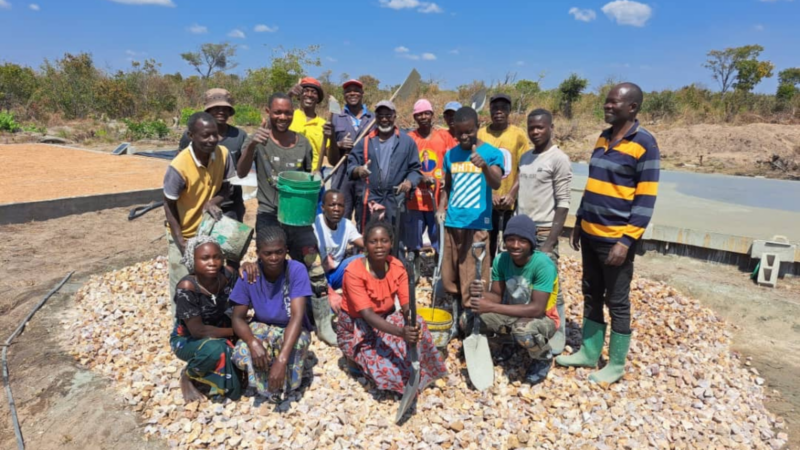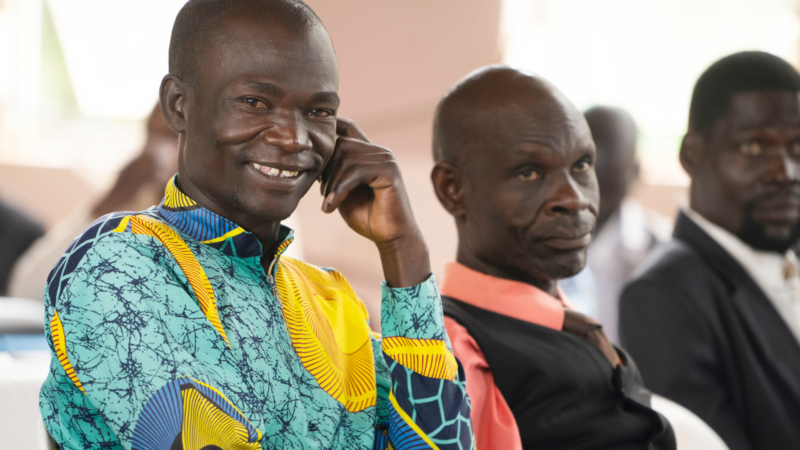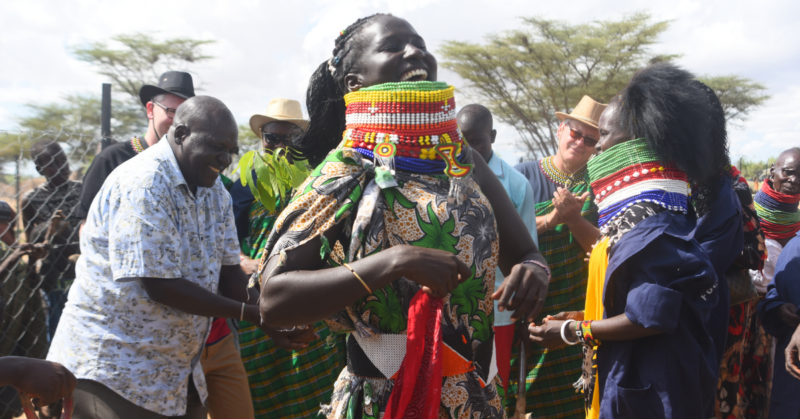My mother is dying. I just left her bedside; she is 85 and in the last stages of Alzheimer’s disease. She is clinging to life with little to say and not much strength to show. But she has taught me so much about dying and the hope for eternity that Jesus offers.
Death is a regular part of our ministry at Bright Hope.
People in poverty are susceptible to disease and suffer from limited access to medicine and doctors. This leads to frequent death among the very young and older adults (age 50+) in our partner churches. Regularly I hear from our 600+ partner churches of key leaders passing.
Jesus shares His perspective about his future on the eve before His crucifixion. He teaches us that His leaving was a good thing—that His death and resurrection would open opportunities for a better life for His followers (John 16:7). Later in verse 20, Jesus says, “You will be sorrowful, but your sorrow will turn to joy,” acknowledging sadness and hope.
Henri Nouwen tells an interesting story in his book, “Our Greatest Gift.”
“Recently, a friend told me a story about twins talking to each other in the womb. The sister said to the brother, “I believe there is life after birth.” Her brother protested vehemently, “No, no, this is all there is. This is a dark and cozy place, and we have nothing else to do but to cling to the cord that feeds us.” The little girl insisted, “There must be something more than this dark place. There must be something else, a place with light where there is freedom to move.” Still, she could not convince her twin brother.
After some silence, the sister said hesitantly, “I have something else to say, and I’m afraid you won’t believe that ether, but I think there is a mother.” Her brother became furious. “A mother!” he shouted. What are you talking about? I have never seen a mother, and neither have you. Who put that idea in your head? As I told you, this place is all we have. Why do you always want more? This is not such a bad place, after all. We have all we need, so let’s be content.”
The sister was quite overwhelmed by her brother’s response and for a while didn’t dare say anything more. But she couldn’t let go of her thoughts, and since she had only her twin brother to speak to, she finally said, “Don’t you feel these squeezes every once in a while? They are quite unpleasant and sometimes even painful.” “Yes,” he answered. “What is so special about that?” “Well,” the sister said, “I think these squeezes are there to get us ready for another place, much more beautiful than this, where we will see our mother face-to-face. Don’t you think that is exciting?”
The brother didn’t answer. He was fed up with the foolish talk of his sister and felt that the best thing would be simply to ignore her and hope that she would leave him alone…”
In John 16:21, Jesus compares death and new life to a woman giving birth.
“A woman giving birth to a child has pain because her time has come; but when her baby is born, she forgets the anguish because of her joy that a child is born into the world.”
Could it be that the pains surrounding the dying process are pains like childbirth? Are they signs of new life coming for loved ones like my mom and partners overseas? Should I feel sadness for mom or excitement for her new “birth?”
Another scripture comes to mind, John chapter 11. In this story, Jesus learns of Lazarus’ sickness and impending death. But Jesus doesn’t leave right away to see him. In fact, He doesn’t go for two whole days, and by the time they reach the village of Bethany, Lazarus has been dead for four days.
Martha, who comes out of the village first to meet Jesus, expresses her faith in Him as the Messiah and affirms His ability to do a miracle (raise Lazarus from the dead).
When Martha leaves, Mary comes out to greet Jesus along with her friends. She is mourning, maybe even wailing, and her guests are grieving too. “But some of them said, ‘Could not he who opened the eyes of the blind man have kept this man from dying?’ ” Seems like they were having a crisis of faith rather than a belief in Jesus as God. They thought it was too late for Lazarus; Jesus can’t do anything about it is their mindset. Then, Jesus weeps.
Jesus knew Lazarus had died before he even arrived in Bethany, and He knew he was going to raise him from the dead.
So why did Jesus cry?
It could have been because He was sad. I don’t want to take anything away from the sadness of death or the pain of being separated from a loved one. However, I am beginning to think Jesus was crying (or “weeping”) at the site of Mary and her friend’s unbelief or lack of faith. Jesus wasn’t troubled about Lazarus’ death because he knew it was birth to a new and better world. Instead, I think he is upset because Mary and the others don’t have faith in Him. This isn’t only a sad circumstance; it was also a celebration of Lazarus’ future resurrection in Christ, graduating to a better reality.
I wonder if Jesus was crying because after all the time he’d invested into their lives, teaching, and performing miracles, they still had so much growing to do in their faith. They hadn’t learned that death is a passage, a birth, not an end. Verse 40 seems to confirm this because Jesus chastises Mary and the others, calling them out to have more faith. “Then Jesus said, ‘Did I not tell you that if you believe, you will see the glory of God?’ ”
So, as I contemplate the impending death of my dear mother, whom I love and admire for the life she lived, I am sad. But, no doubt, I will miss her wisdom and cheerful encouragement.
But there also is a deeply rooted hope and joy for mom. Right now, she is feeling pains that will usher her through death to a world in the presence of God and paradise. She will be walking with Jesus from this world (John 14:3NLT), where colors are muted like a black and white television, to full vibrant colors and sound. From this world of little love to a world filled with Jesus’ unmeasurable love.
Mom, you are nearly through the final stage. The birth pangs are real, but soon they will be over. I am happy for you and cannot wait to join you one day.
Learn more about Bright Hope’s holistic ministry.
When Hope for Today Makes Tomorrow Possible
Hope for Tomorrow: Sometimes Poverty Alleviation is Simple
Hope for Eternity: Jesus Cares for the Poor
Bright Hope, a Holistic Ministry Meeting the Needs of the Poor
Grow. Change. Impact: The Power of Mutual Transformation
Learn more! Join Impact and start bringing Hope for today to some of the most vulnerable people in the world.





